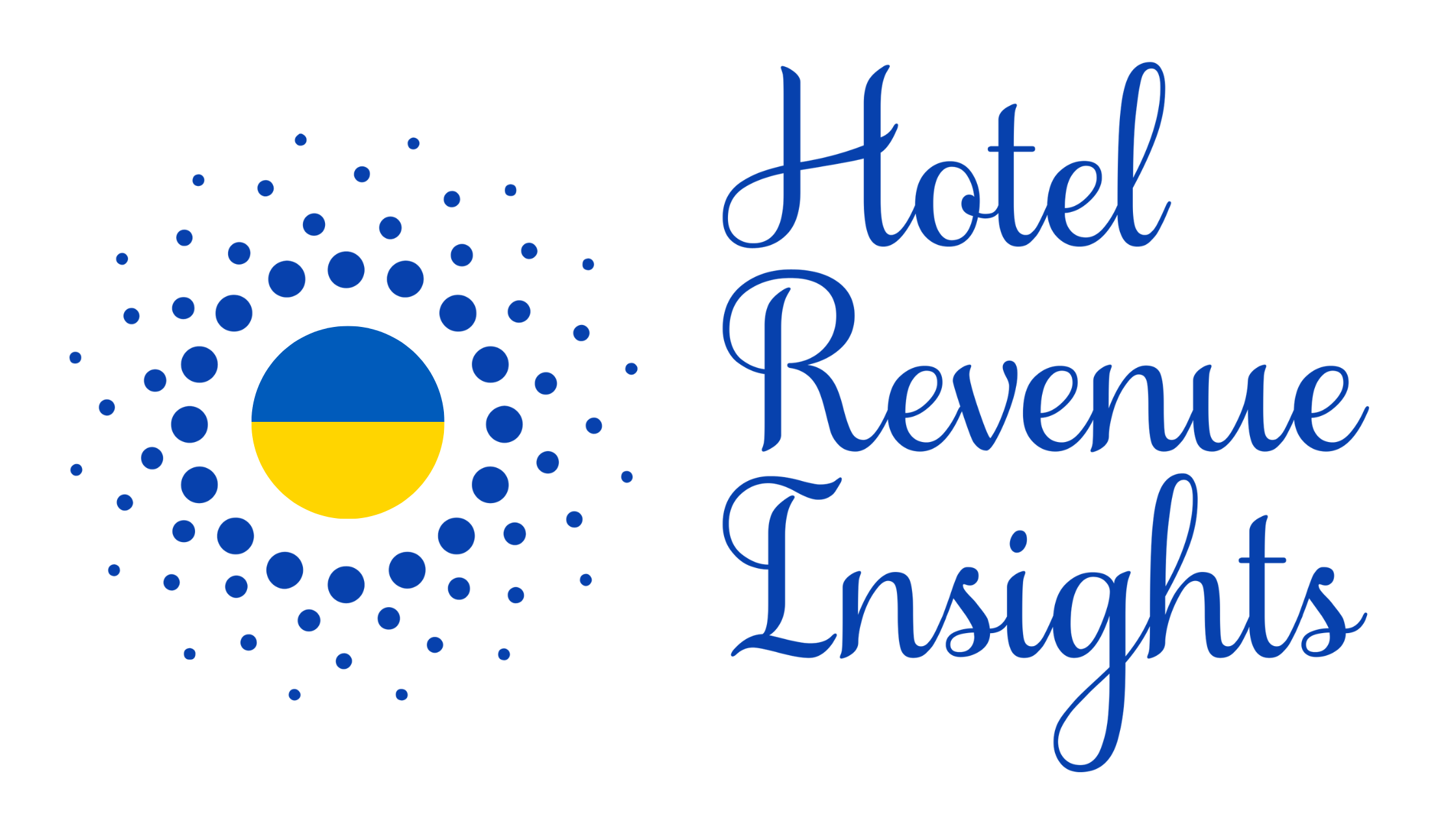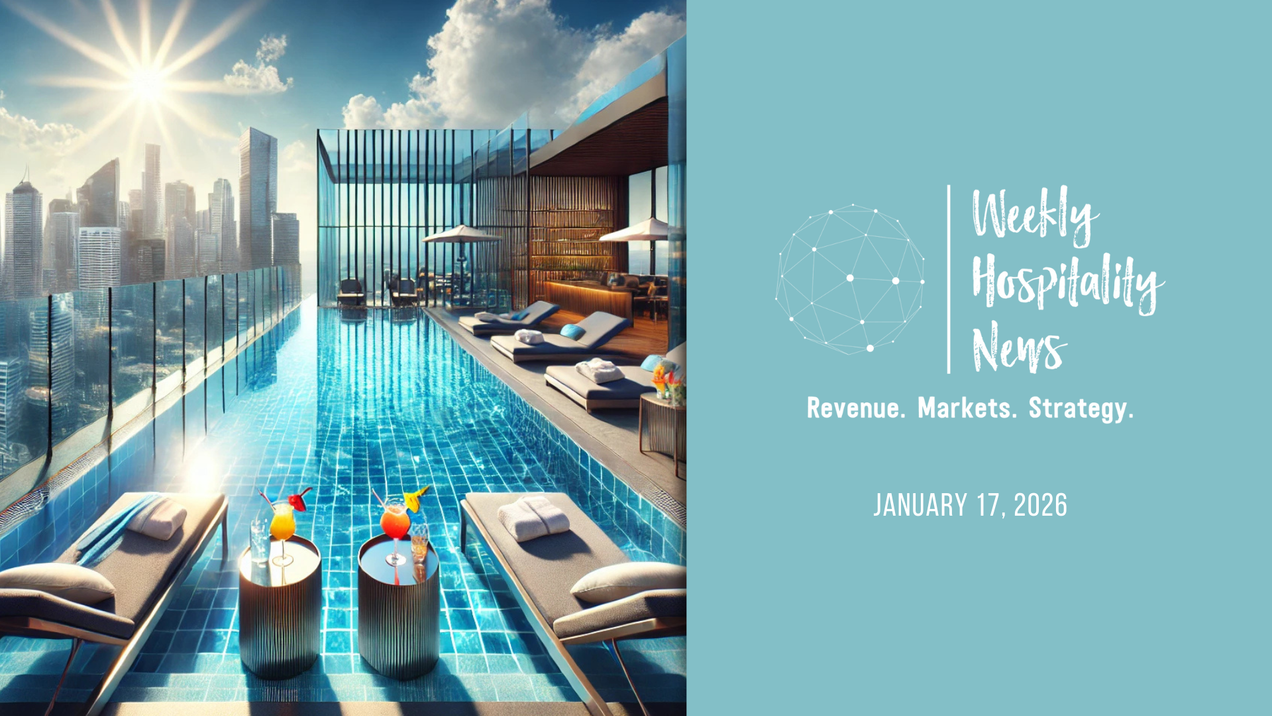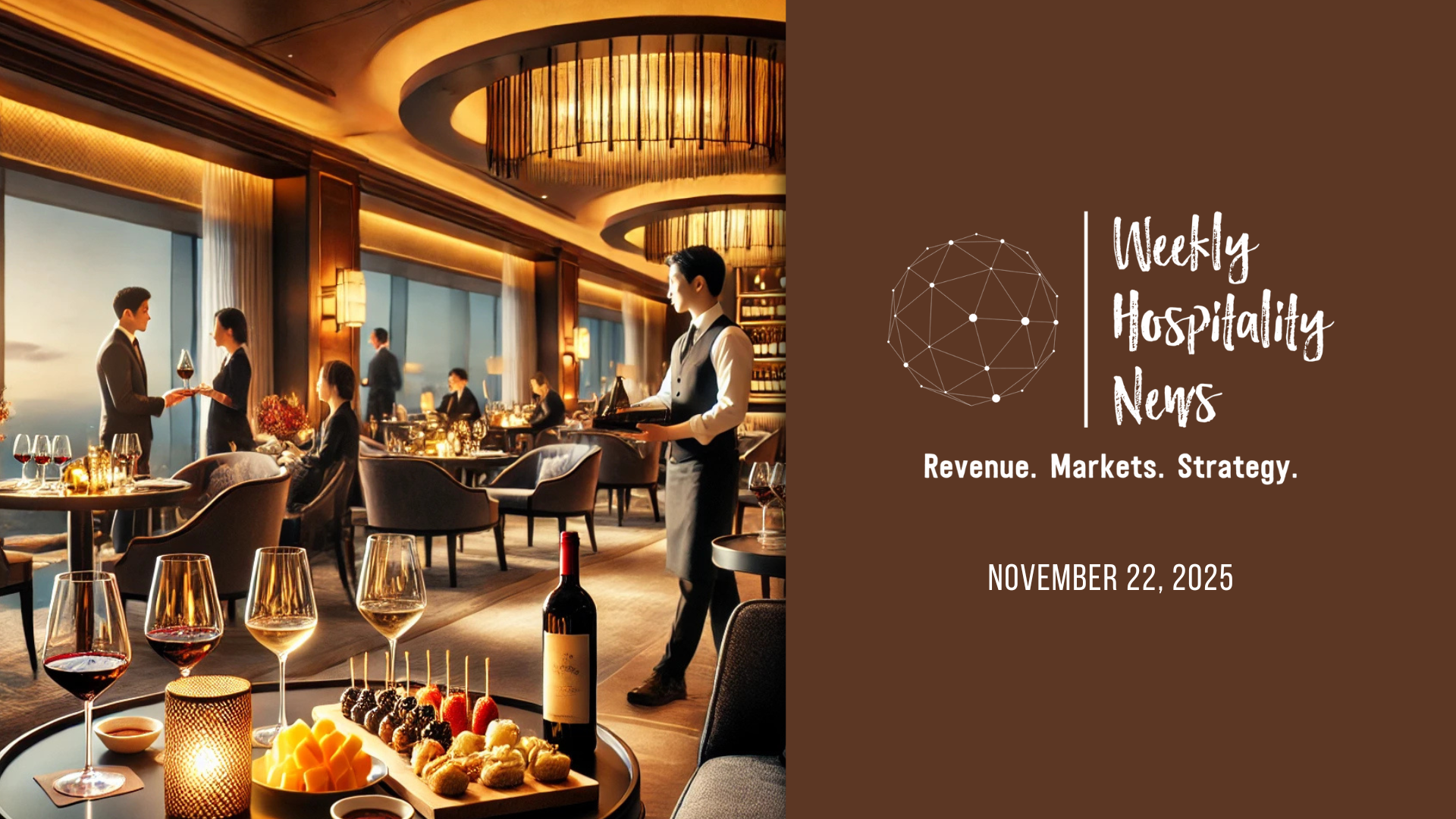
Weekly Insights. November 22, 2025
Best hospitality industry articles focused on 💵revenue, 📊markets, and 🎯strategy (Nov 16 - Nov 22, 2025)
Think outside the guestroom: Innovative strategies to drive hotel revenue
The article shows how hotels can grow revenue beyond rooms by activating underused spaces and selling more to both guests and locals. Ideas include day passes and memberships for pools and gyms, coworking and small events, pop ups and partnerships with local brands, parking and shuttle bundles, rooftop and lobby programming, and smarter packaging with spa and dining. It stresses using data to pick the right mix, testing offers by season and day of week, and training teams to cross sell so these extras lift profit without large capital spend.
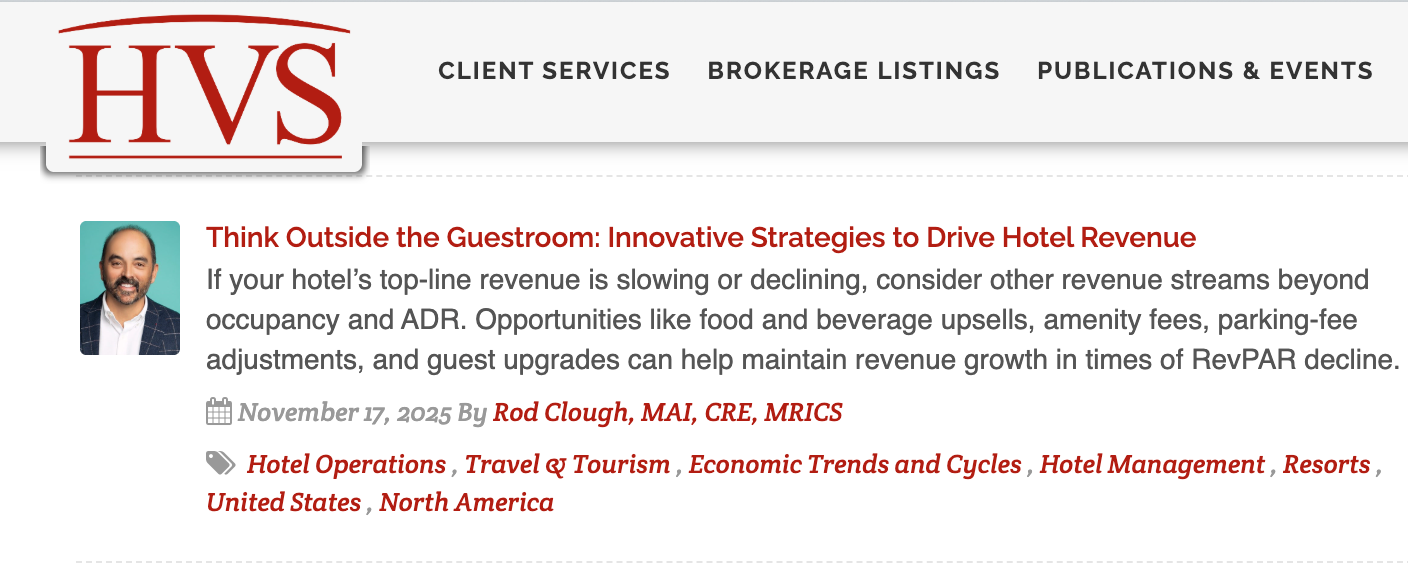
How is the shift from revenue growth to total profit optimization redefining the role of today’s revenue leader?
Rising labor, energy, and distribution costs have changed the scoreboard. A strong RevPAR no longer guarantees a healthy bottom line. Hotels can fill rooms yet still fall short if acquisition costs or channel mix erode margin. Volume without profit is just activity.
The conversation is moving from "how full are we?" to "how smart is that revenue?". Total Profit Optimization, TRevPAR, GOPPAR, and contribution by department is becoming the real benchmark. Leading hotels are integrating finance, operations, marketing, and revenue into one performance ecosystem, where every outlet and every guest touchpoint contributes to total value.
Today's revenue leader must be as fluent in cost, efficiency, and flow-through as in pricing. The best are shifting from revenue optimizers to profit strategists, aligning decisions across departments to protect and grow the bottom line.
The question is not how to drive more revenue but rather how do we transform revenue management into profit leadership?

Hotel financing options: How to get hospitality funding
The article gives an overview of how hotels secure funding throughout the life cycle of a project, from development to operations and renovations. It explains the capital stack, common loan types, equity and mezzanine options, and how lenders assess risk using metrics like DSCR and LTV. It stresses the importance of solid feasibility studies, realistic cash flow forecasts, and sensitivity analyses, as well as building strong lender relationships and matching financing structure to the hotel’s market, brand positioning, and business plan.

How payment options impact your hotel's booking engine conversion
The article explains how to make hotel booking engine payments smooth, secure, and conversion friendly. It covers offering multiple payment methods like cards, wallets, and local options, using deposits or preauthorizations, and handling refunds and cancellations clearly. It stresses PCI and SCA compliance, fraud prevention, and chargeback management, and recommends real time integrations with PMS and channel tools so rates, availability, and payments stay in sync and guests can book with confidence.
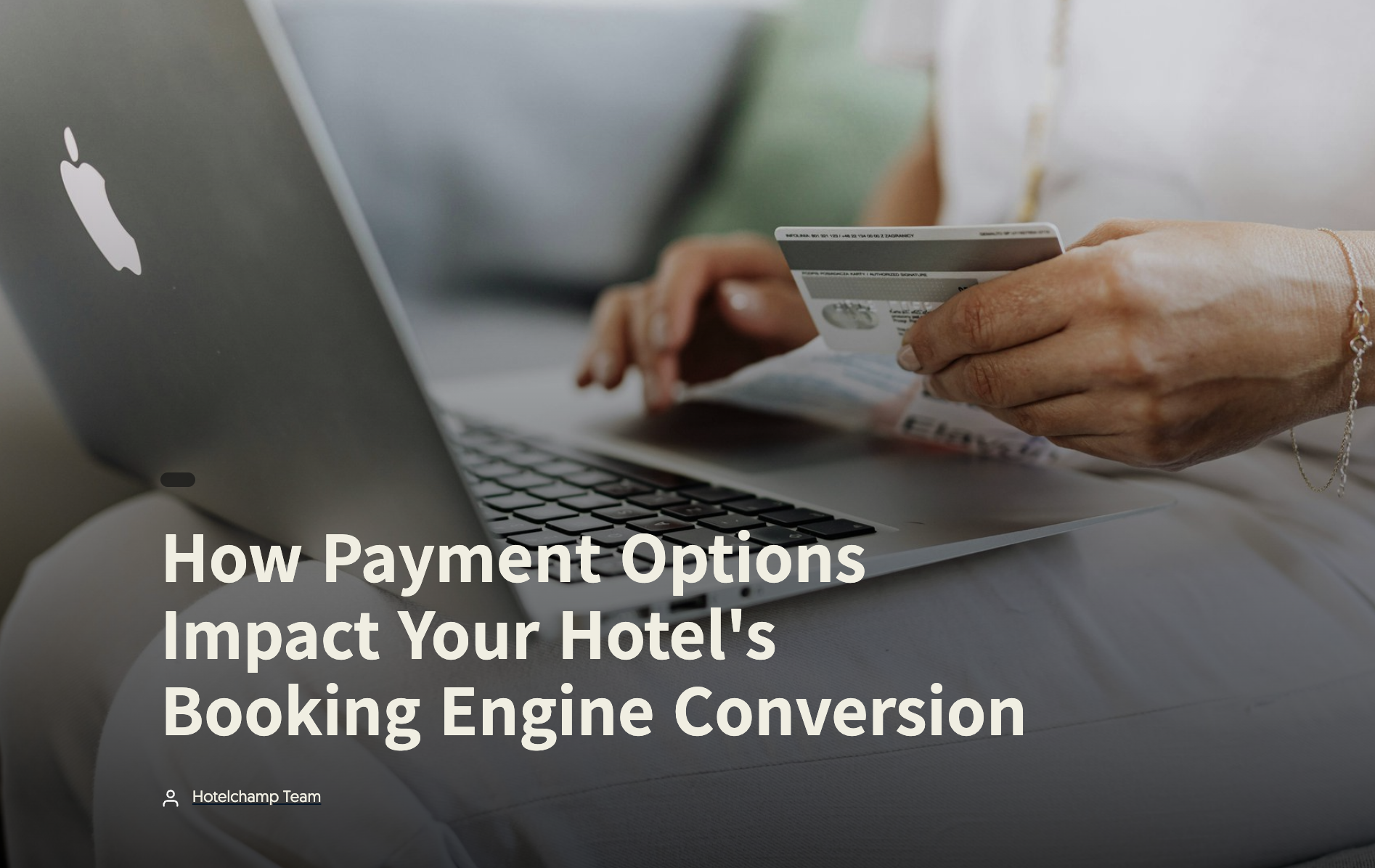
Forget the hype: How hotels can actually win with AI
The article shares takeaways from the Destination AI conference and urges hotels to ignore hype and focus on practical wins. It says consumer use of AI in trip planning is surging, so hotels should modernize content and data, integrate tools with existing systems, and measure outcomes like faster responses, lower costs, and better conversion. It cautions that many AI projects fail when they are not scalable or tied to clear business goals, and recommends starting with specific use cases that improve guest experience and team efficiency.
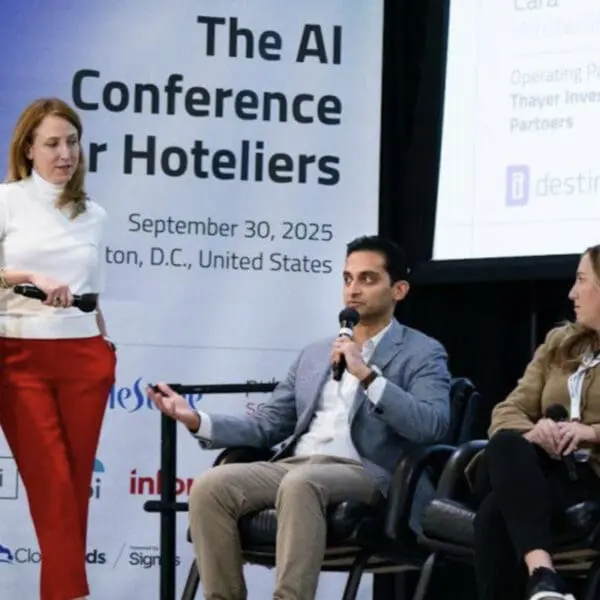
Hotel Booking APIs: Wholesalers, Channel Managers, and GDSs
The article explains what hotel APIs are and how they let systems like PMS, CRS, channel managers, booking engines, POS, and payments share data in real time. It covers common uses such as pulling rates and availability, creating and modifying reservations, syncing inventory, guest check in and profiles, and on property charges. It describes API styles like REST and SOAP, notes topics such as authentication, rate limits, webhooks, and certification, and gives tips for choosing a provider based on coverage, documentation, support, security, and long term maintenance.
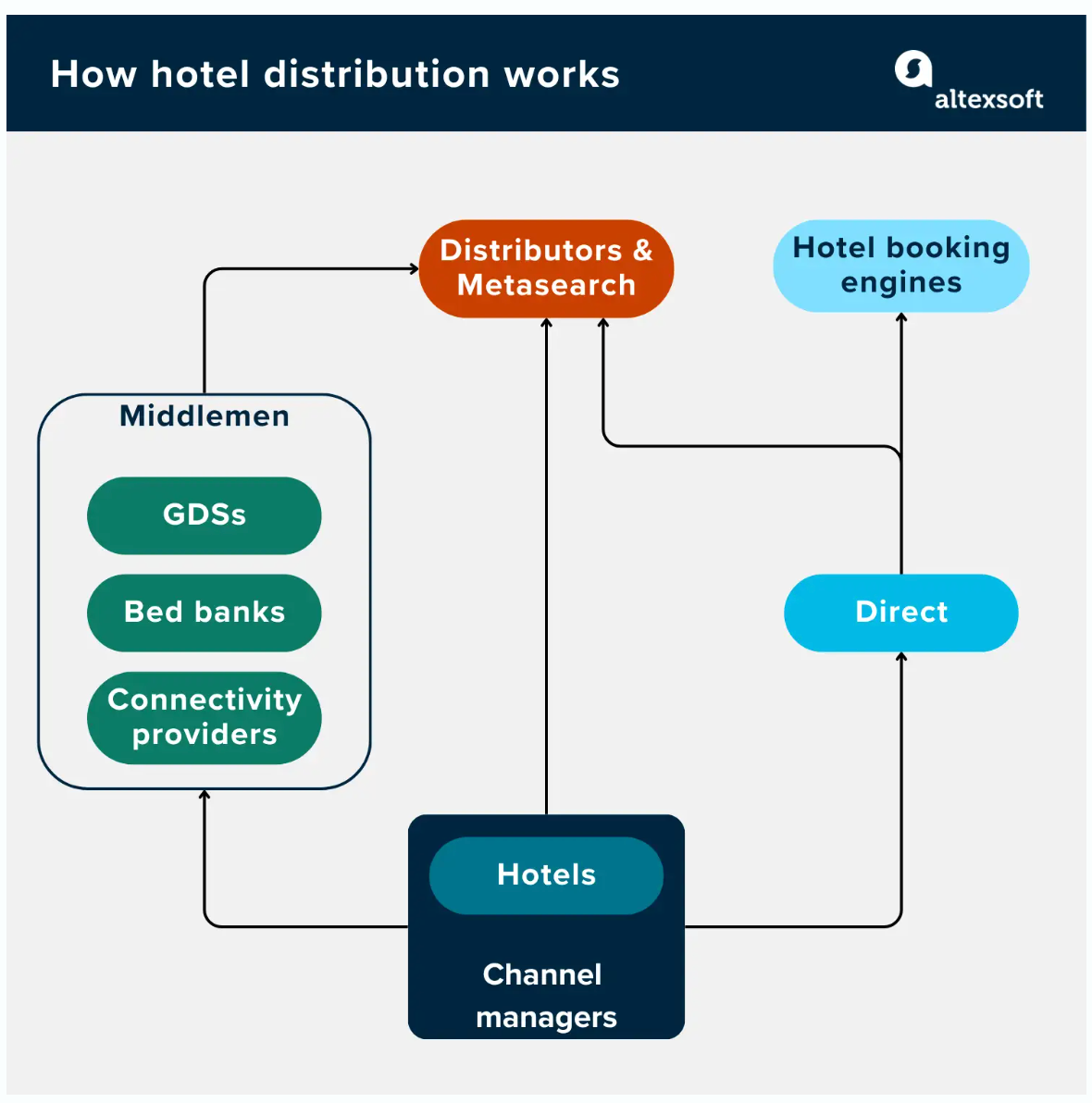
Enabling AI-driven impact for hotels: A three-pronged approach
The article says hotels can get real results from AI by following a three part plan that combines smarter digital marketing, stronger data foundations, and practical automation. It shows how AI driven campaigns like Google Performance Max for travel goals are lifting direct conversions, explains that clean centralized data and CRM are needed to power personalization, and stresses integrations that remove manual work so teams act faster and spend more efficiently.

Follow on LinkedIn
